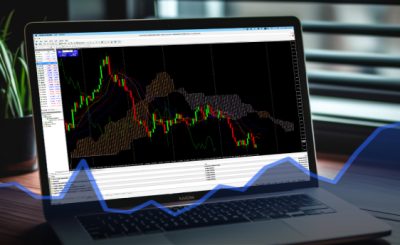The journey into forex trading, whether as a novice or a seasoned expert, begins and evolves with education. The foreign exchange market is dynamic, fast-paced, and heavily influenced by a wide array of global factors. For traders to succeed in such a challenging environment, access to quality education materials is essential. The best forex education materials offer a combination of theoretical knowledge, practical insight, and continuous learning opportunities.
This article explores a curated list of the most valuable forex education materials tailored for both beginners and experienced traders, outlining what makes them effective and how they can support growth at every stage of a trader’s journey.
Understanding the Need for Forex Education
Before diving into the materials themselves, it’s important to grasp why forex education is critical. Unlike stock or commodity trading, forex involves simultaneous buying and selling of currency pairs, often with significant leverage. While the potential rewards can be attractive, the risks are equally high. Proper education helps traders:
- Understand market mechanics and terminology
- Develop risk management strategies
- Build and test trading plans
- Interpret economic indicators and technical signals
- Navigate trading platforms efficiently
Whether you’re just starting or aiming to refine advanced strategies, continuous education keeps you sharp and responsive in the market.
Forex Education Materials for Beginners
For those new to forex, the learning curve can feel steep. Beginners need to start with foundational materials that simplify complex concepts without diluting accuracy.
- Introductory Guides and eBooks
Comprehensive beginner guides or eBooks are often the first step in forex education. These resources break down the basics of how the forex market works, explain common terms, and introduce key concepts such as pips, lots, leverage, margin, and spreads. Look for guides that include:
- Step-by-step instructions
- Real-world examples
- Visual aids (charts and diagrams)
- Simple, clear language
Well-written eBooks serve as useful references and can be revisited as traders advance.
- Video Tutorials and Webinars
Many beginners learn better through visual instruction. Video tutorials are particularly effective at demonstrating how to use trading platforms, place trades, read charts, and apply indicators. High-quality webinars also offer the opportunity to engage with instructors, ask questions, and see live market examples.
What to look for in video-based education:
- Short, focused lessons
- Real-time screen recordings
- Clear explanations of tools and strategies
- Updated content reflecting current market conditions
- Online Forex Courses
Structured courses offer a more formal and in-depth approach to forex education. These may be organized into modules covering topics such as trading psychology, technical analysis, fundamental analysis, and risk management. Some even include quizzes, assignments, and certificates of completion.
An ideal beginner course should:
- Progress logically from simple to advanced topics
- Offer hands-on practice (e.g., demo accounts or simulations)
- Include access to instructors or community support
- Glossaries and Terminology Resources
The forex market has its own language. A reliable glossary that explains common and advanced terms is essential for newcomers. Good glossaries are searchable, regularly updated, and include practical examples to explain usage.
- Simulated Trading Platforms
Demo accounts or trading simulators are arguably the most valuable tools for beginners. They allow users to apply what they’ve learned in a risk-free environment using virtual capital. This hands-on experience helps build confidence and develop muscle memory for real trading scenarios.
Forex Education Materials for Experts
Advanced traders also need resources to continue developing their skills, adapt to market changes, and refine their strategies. Here are some of the most valuable education materials tailored to experienced traders.
- Technical Analysis Tools and Charting Courses
Advanced traders often rely on sophisticated charting techniques and pattern recognition. Educational resources that dive deeper into:
- Fibonacci levels
- Elliott Wave Theory
- Ichimoku Clouds
- Advanced candlestick formations
- Algorithmic trading systems
can help traders improve their timing and accuracy. Look for materials that offer both theoretical insights and real-market case studies.
- Market Research Reports and Economic Analysis
Staying informed on global economic conditions is critical for forex trading success. Access to in-depth economic analysis, central bank commentary, and geopolitical updates can give seasoned traders an edge. The best materials provide:
- Daily or weekly market outlooks
- Currency strength analysis
- Interest rate forecasts
- Global macroeconomic trends
Traders can use this data to anticipate currency movements and position themselves accordingly.
- Strategy Development Workshops
Advanced education materials often include strategy-specific content, such as:
- Scalping techniques
- Swing and position trading setups
- Risk-reward ratio optimization
- Portfolio management in forex
These resources may come in the form of advanced webinars, group workshops, or one-on-one mentoring. Traders benefit most when content includes performance tracking tools, real-time analysis, and peer reviews.
- Backtesting and Analytics Tools
For experienced traders looking to refine or automate their strategies, backtesting platforms are invaluable. These tools allow users to test historical data against specific trading rules to evaluate profitability and risk.
Educational content around these tools should:
- Explain how to set up accurate backtests
- Clarify statistical results and performance metrics
- Provide tips on avoiding overfitting and false positives
- Trading Psychology and Discipline Resources
No matter how skilled a trader is, psychological discipline remains a challenge. Materials that address the mental side of trading—such as dealing with losses, avoiding overtrading, or sticking to a plan—are critical for long-term success.
Look for:
- Books and articles from trading psychologists
- Interviews with professional traders
- Journaling techniques to track behavior patterns
Blending Beginner and Expert Materials for Lifelong Learning
Many of the best traders maintain a mindset of continuous improvement. Combining beginner and advanced education materials helps reinforce core concepts while pushing boundaries into new areas of expertise. For example:
- Revisiting introductory materials can clarify overlooked details
- Teaching or mentoring other traders can reinforce your own knowledge
- Exploring new strategies through both reading and practical testing maintains versatility
It’s also beneficial to regularly reflect on trading performance and identify areas for growth, adjusting your education journey accordingly.
Choosing Reliable Sources
No matter the material, credibility is key. When selecting forex education resources, ensure they are:
- Authored by professionals with proven trading experience
- Free from promotional bias
- Updated to reflect current market conditions
- Clear, well-structured, and easy to follow
Avoid relying on hype-driven or guaranteed-profit promises. Instead, focus on materials that emphasize skill-building, critical thinking, and practical application.
Conclusion
Whether you’re taking your first steps into the forex market or seeking to refine a well-honed strategy, the right education materials can make all the difference. From beginner guides and video tutorials to advanced charting courses and economic research, forex education should evolve alongside your trading journey. By investing in high-quality resources and staying committed to learning, traders not only improve their performance but also build the resilience and insight needed to thrive in an ever-changing global market.



